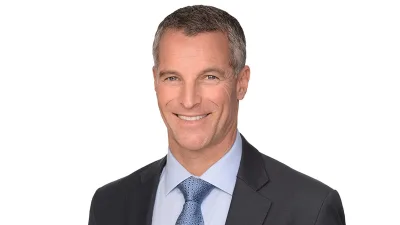Look forward not backward in managing market risk, says MLC


“Risk comes from not knowing what you’re doing,” says the world’s richest investor, Warren Buffett. But for those of us lacking the US billionaire’s knowledge, how can market risk be managed for positive returns in an era of low economic growth, declining interest rates and increasing market volatility?
While Australian equities have delivered an average annual return of 9.5 per cent over the past 20 years, the end of the mining boom, fears of a property slowdown and worries over the Chinese economy and the threat of rising US interest rates have dampened sentiment. According to the 2015 Russell Investments/ASX Long-term Investing Report, Australian equities have lagged international shares for two straight years and may continue to lag with a depreciating Australian dollar, forcing investors to further diversify to reduce risk.
“Given the ongoing market volatility and current low interest rate environment, investment returns from traditional asset classes like equities and bonds are becoming harder to come by. This issue is compounded by the fact that cash and term deposits can’t deliver meaningful returns. This is forcing usually conservative investors up the risk curve and putting their retirement at risk,” wealth management fund MLC warns.
With the Australian sharemarket yet to recover to its pre-global financial crisis (GFC) peak of October 2007, investors have become more averse to capital losses, requiring a greater range of investment solutions from advisers.
Boom-bust cycle worsens
“The disquieting reality is that we’ve had a series of booms and busts since the late ‘80s, and each time the bust hasn’t quite wiped out the excesses and policymakers have become more and more inventive in their response, particularly monetary policy. This has allowed excesses to build up so each bust has progressively gotten worse, and clearly this can’t go on forever,” says MLC’s Head of Investments, Dr Susan Gosling.
“We also have to stop judging investment success on the basis of outcomes relative to the market. You might beat the benchmark, but if the benchmark is down 10 per cent and you’re down 8 per cent, you still have a negative return.”
Planning ahead
Being “forward looking” with investments requires accepting that forecasts of the future are always unreliable, with past results simply one sequence of events out of a range of possibilities. Investors are also subject to common behavioural foibles, including overconfidence and hindsight bias, making it difficult to envisage a market environment which may be significantly different in future.
According to Dr Gosling, MLC’s “Investment Futures Framework” considers more than 50 potential local and global scenarios, including the potential for another GFC. Based on the framework, MLC’s three “Inflation Plus” portfolios are managed to a return outcome rather than a benchmark, aiming to achieve positive returns in a range of scenarios by avoiding the downside, diversifying into a range of assets and strategies and exploiting the power of compounding.
Dr Gosling also points to the need for flexible asset allocation given the changing risk profiles of assets such as bonds and equities.
“Traditionally, advisers have sought to adjust the level of debt and equity in a strategy, which is seen as a proxy for the risk. But the problem is that this mixes something constant, the risk profile of an investor, with something that is variable, the risk of bonds and equities,” she says.
“If I want to maintain a consistent risk profile, flexible asset allocation rather than strategic is vital. We must be able to adjust the asset mix to deliver returns and manage risk, while avoiding capital losses.”
After 128 years managing Australians’ money and with $136 billion of funds under management, MLC sees the next century as no less challenging, but also no less profitable providing market risks are controlled. In a volatile world, having confidence in future investment outcomes is crucial for investors when planning for their future retirement needs.
Recommended for you
While the Magnificent Seven have been a runaway success – they drove almost two-thirds of the S&P 500’s 24% return in 2023 – our view is that the largest seven companies in Australia could anchor our market in the medium term. So, how can investors diversify their portfolios and make better returns without turning to more volatile small caps or offshore markets? The Ex-20 might be the answer.
Hybrid securities can offer investors equity-like returns, yet with a lower level of risk. Here’s a rundown on hybrids and why they are attractive investment options.
Diversified managed funds could make an ideal addition to a managed account, as the broad toolset available to the fund manager enables them to seek outperformance and manage risk, according to Allan Gray.
The number of advisers using managed accounts has exploded in recent years, often at the expense of diversified managed funds. But diversified funds deserve a place in almost any multi-asset portfolio, held either within or alongside a managed account, according to Allan Gray.















